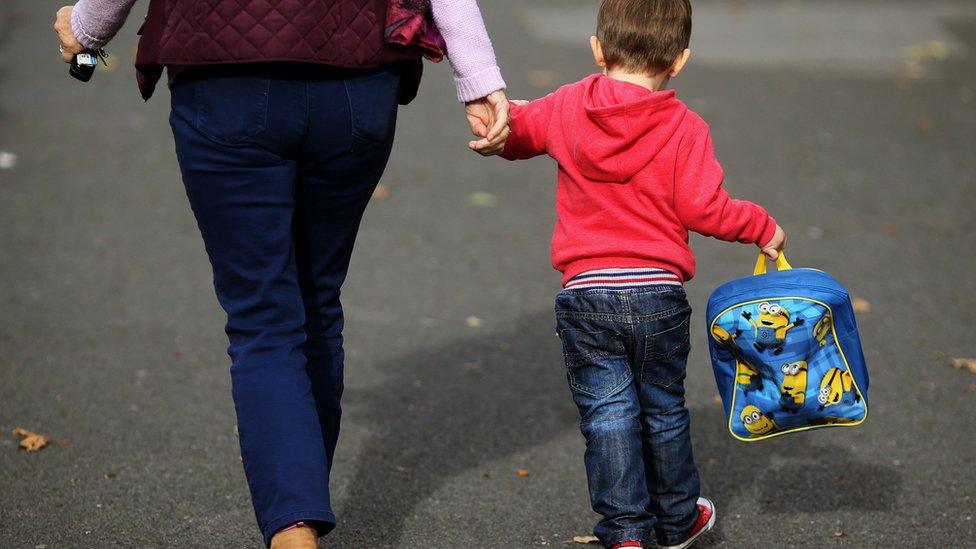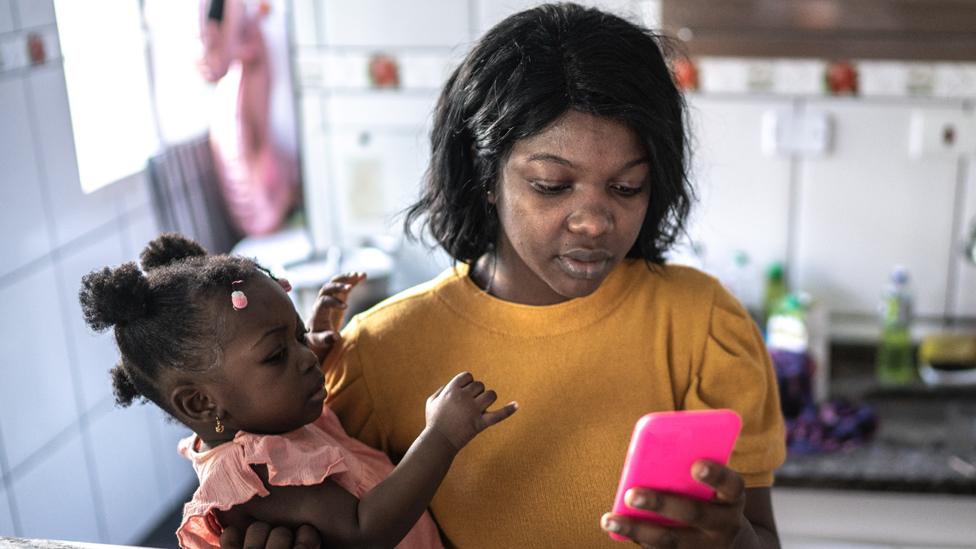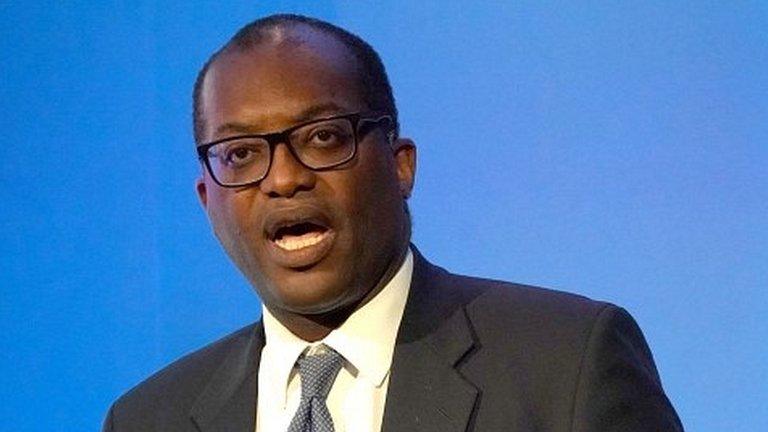Cost of living: £500m in new grants to help poorest households
- Published
- comments

The government has announced £500m of grants to help families struggling with the cost of living as other support schemes are withdrawn.
Rising prices - including spiralling energy bills - are making it harder for those on low incomes to make ends meet.
The end of furlough and the £20 weekly top-up to universal credit will also remove support provided during Covid.
Labour said the money "falls well short of what is needed".
Local councils in England will distribute the grants, which the government says will help millions of households pay for essentials like food and bills.
The cash will be made available in October. Scotland, Wales and Northern Ireland will receive up to £79m of the £500m.
Work and Pensions Secretary Therese Coffey said that the government had helped millions of people over the pandemic.
"Many are now back on their feet but we know that some may still need further support.
"Our targeted Household Support Fund is here to help those vulnerable households with essential costs as we push through the last stages of our recovery from the pandemic."
The fund replaces the Covid-19 local support grant programme, which was designed to support those most in need across England with the cost of food, energy (heating, cooking, lighting), water bills (including sewerage) and other daily needs.
The new fund will run over winter and those in need of support should contact their local council, the government said.
Households struggling with the cost of food, heating, water and other essentials will be eligible for support.
Last week, Business Secretary Kwasi Kwarteng warned that many UK households could face a "very difficult winter", with fuel prices surging and the uplift in universal credit ending.
'Pretty thin veneer'
Following widespread criticism from charities, opposition parties and some Conservative MPs, the government decided to offer additional support to the poorest families.
The government said the fund would bolster support from the Warm Home Discount which gives a £140 rebate on energy bills each winter to more than 2.2 million low-income households and the Cold Weather Payment which provides £25 extra a week for poorer households when the temperature is consistently below zero.
But former Conservative leader, Iain Duncan Smith, has told the BBC the announcement is an attempt to placate the "concern" among Tory MPs at the squeeze on household budgets.
"It shows me there is a realisation" by ministers that "there is a problem, but the scale isn't understood", he said.
He said the benefits system was the best way to deal with the issue rather than providing more funding for local councils.
And Labour's shadow child poverty secretary Wes Streeting told the BBC: "What the government's announced today, I'm afraid, is a pretty thin veneer really.
"It's designed to give the impression that they're going to tackle the cost of living crisis, but in reality [...] it falls well short of what is needed."


With talk of a cost of living crisis increasing, this money is designed to help the most vulnerable through the winter months.
In the Treasury, there is an acknowledgement that a mixture of factors - inflation, energy prices, fuel prices among other things - will make the coming weeks challenging for some.
The cash though is designed to last five months and cover as many as 4 million people in England.
Some are questioning why ministers are going ahead up ending the universal credit uplift at the same time.
Opposition parties are still calling for a rethink - though that has been ruled out by government.

Householders are facing a rise in energy bills as the cost of wholesale gas soars, and inflation saw a sharp increase in the year to August.
Recent analysis by the Resolution Foundation, external think tank suggested that a typical low-income family with children could see their income fall by more than £20 a week over the next six months.
Removing the universal credit top-up will be a "catastrophic cut" that could cause people's mental health problems to spiral, the charity Mental Health UK warned on Tuesday.
Visits to its online mental health and money advice services have almost doubled in a year - from 30,760 in August 2020 to 60,214 last month.
Housing charity Shelter, external has also warned that more expensive bills and the reduced benefit are creating a "perfect storm" for homelessness to rise this winter.
Related topics
- Published1 September 2021

- Published21 September 2021
